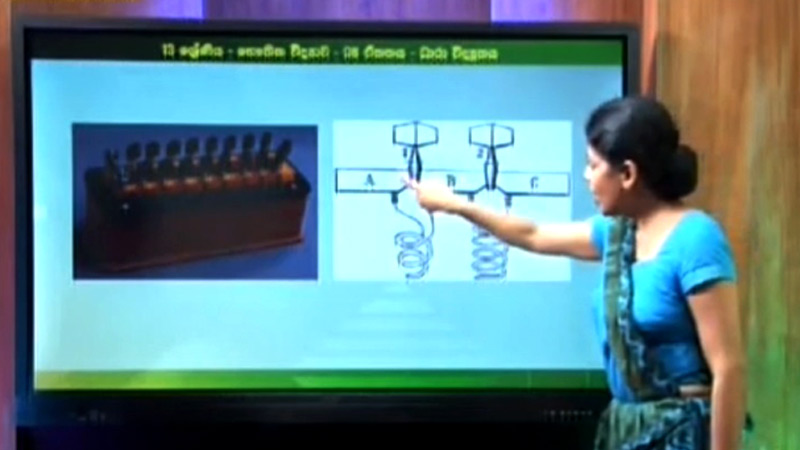The Gurugedera programme broadcast on Channel Eye and Nethra TV, seven days a week for O/Level, A/Level and Grade 5 scholarship students, has become a benchmark delivering education on an islandwide basis, during the lockdown.
 Gurugedera is a government initiative to meet a crisis which drew on the support of a not-for-profit organisation and two NGOs, to deliver quality education to over 3 million students during the lockdown, through terrestrial television.
Gurugedera is a government initiative to meet a crisis which drew on the support of a not-for-profit organisation and two NGOs, to deliver quality education to over 3 million students during the lockdown, through terrestrial television.
Dr Sunil Nawaratne, Director General (DG) of the National Institute of Education (NIE) says that the entire programme from concept stage to delivery took just ten days. “Over three million students are now supported by the Gurugedera programme. We telecast 15 hours of lessons seven days a week.”
Gurugedera was launched on a concept of the Minister of Education, Dullas Alahapperuma, with the support of Higher Education Minister Bandula Gunawardane, under the President’s “Saubhagya Dekma” programme. Minister Dullas Alahapperuma appointed a task force which included Ministry officials, and experts in the field including Prof. Lalith Gamage, Vice Chancellor of the Sri Lanka Institute of Information Technology (SLIIT).
Although Higher Educational Institutes like SLIIT were very successful in delivering online lectures through the Internet, the task force felt a more equitable mode of delivery was required for school education.
The NIE was charged with putting this mammoth operation together at brief notice. “On April 1, the Ministers of Education and Higher Education put in a cabinet paper which was approved on the 7. On that very day, we signed an agreement with Rupavahini for the broadcast of these education programmes,” Dr. Nawaratne said.
“It is a daunting exercise as there was no facility that could handle everything in one place. So we distributed it in seven different directions,” said the DG of NIE. Apart from the studio at NIE and another resource hired by the NIE, facilities were made available to record Gurugedera at SLIIT, Dharmavahini and DP Education. A studio in Jaffna was also engaged to record lessons conducted in the Tamil language.
The operations of the Gurugedara programme is coordinated by a team including N.H.M. Chitrananda, Secretary of the Ministry of Education, Anura Dissanayake, Secretary, Ministry of Higher Education, Prof. Sampath Amaratunga, Chairman of the University Grants Commission (UGC), State Secretary Education, Ranjith Chandrasekara, Additional Secretary to the Ministry of Education, Hemantha Prematilleke, NIE, Deputy Director General, Visharda Sugath Samarasinghe, NIE, Deputy Director General, K.W.B.M.P. Wijesundara, NIE, Director, Padmasiri, NIE, Director, Darshana Samaraweera and Creative Director Chandana Aruna Deva.
The exams that students are being prepped for via Gurugedera are the A/Levels and scholarship exams coming up in August and O/Levels scheduled to be held in December. The O/L subjects being taught are English, Maths, Tamil, Science, Social Science and History.
Dr Nawaratne says, “If we are to develop the human capital of Sri Lanka, we need to take an aggressive approach in changing the education system in the country. Today our per capita income is US $ 4,000 and it took over 70 years to come to this point. Our target is to have a per capita income of US $ 12,000 by 2035.”
Professor Lalith Gamage CEO of SLIIT said, “this endeavour has probably become a silver lining in education in this black cloud of a pandemic where the maximisation of resources are now being considered in a centralised environment to level out the playing field.”
Professor Gamage, with his lengthy experience in the education sector, explains that what students learn in the classroom is only about 60 percent of what they require to survive.
Professor Gamage says the Ministry of Education is setting up 1,300 computer labs around the country, which will support the Gurugedera programme as an auxiliary arm.
The pandemic and the lockdown have brought many challenges to Sri Lanka, but with it, fresh opportunities. In education, technology will help in leveling the playing field, and clearing disparities that previously existed between urban and rural schools. But the question now is, are we ready to make the change?



Add new comment